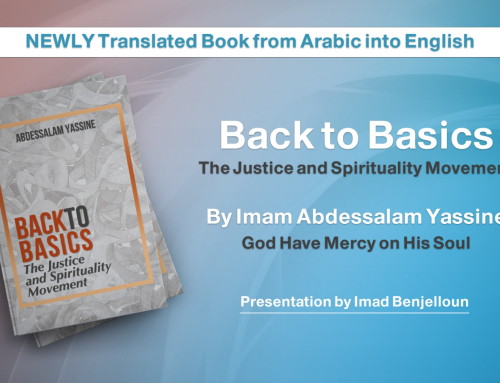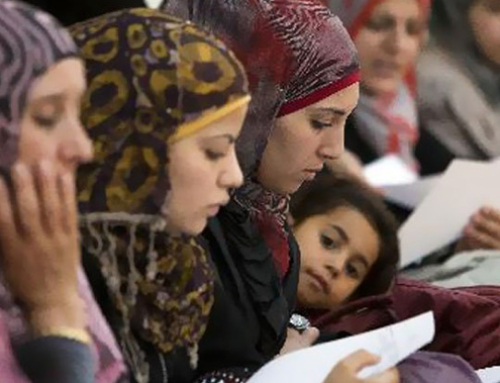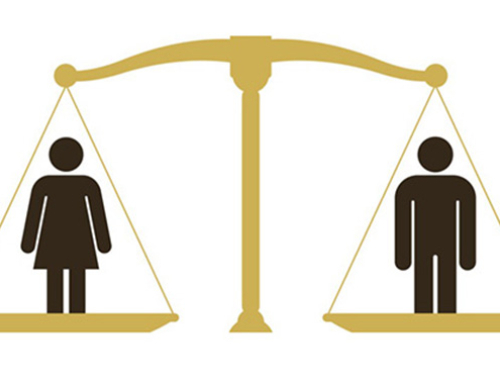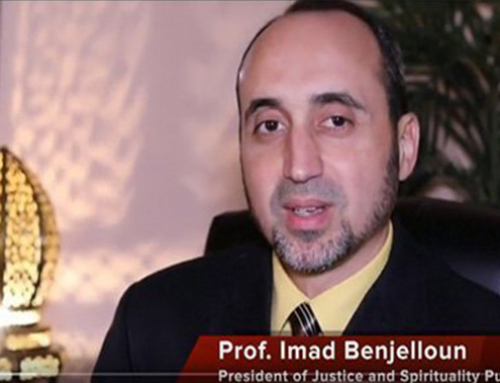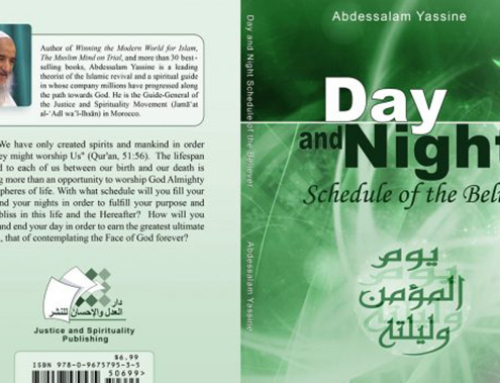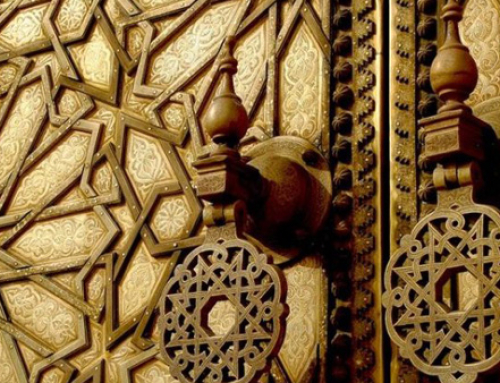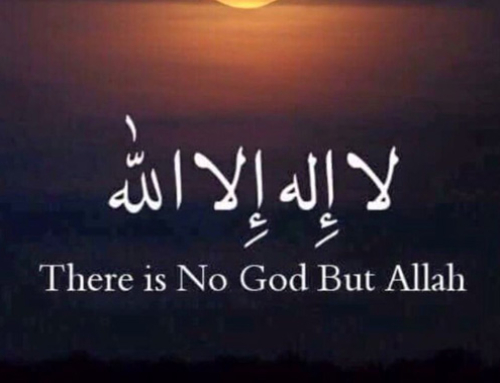Imad Benjelloun
April 6, 2019
What’s Unique about Imam Yassine’s Book for Women? by Imad Benjelloun
Launch Event of Siraj Centre for Research and Studies
Saturday, March 09, 2019
University of Hertfordshire, Hatfield, UK
In the name of God, Most Gracious, Most Merciful. May God shower His peace and blessings upon Prophet Muhammad, his family, his companions, his brothers and sisters, and his party.
The main question I am going to address in my talk is: Does the book “Muslim Women:
Journey into the light by Imam Abdessalam Yassine” bring any new insight given that there have already been several books on the same topic?
The answer lies in the combination of the following eleven features of renewal (tajdid), which I do not think, to the best of my limited knowledge, they exist all at once, in any other book about Muslim women. The book is a guide, a Prophetic Method (minhaj nabawi) that is 1. comprehensive, 2. practical and relevant, 3. fair and balanced, 4. fact-based and research-based, 5. experience-based, 6. original, 7. highly respectful of women, 8. valid for all, 9. goal-oriented, 10. God-centered and hereafter-oriented, and last but not least 11. effective.
Before I explain each of these eleven features of renewal, I would like first to answer the following question: what is the purpose of this book? The answer lies in its title: Muslim Women: Journey into the Light (in Arabic: tanwir al-mu’minat).
Purpose of the Book:
Imam Yassine states: “So either sleep on undisturbed or come along and follow the pages of this book patiently. And learn its purpose from its title. My intention – God make it for His sake – is to enlighten the minds of the believing women and believing men with the knowledge about the purification of souls alongside, or ahead of, that activism that seeks to do justice to the woman. The aim is to incorporate into such activism a theoretical knowledge of purification as well as a practical system of purification for our soul and heart. For on the Day when neither wealth nor children will be of any use, only those with a heart free from evil will prosper.”
The first key word in the title is tanwir, which is to enlighten without burning. God says: “And made the moon a light in their midst, and made the sun as a lamp.” [Noah 71:16]. He also says: “Blessed is He who has placed in the sky great stars and placed therein a lamp [sun] and a moon giving light.” [The Criterion 25:61]. In both of these Quranic verses, God uses the word nur (light) for the moon whereas he uses the word siraj (lamp) for the sun because the moon gives light without causing any burning whereas the sun gives light but may cause burning. A siraj (lamp) can be both: either like a sun that enlightens and may burn or like a moon that enlightens but does not burn. That is why God says describing His beloved Messenger Mohammed, may He bless him and grant him peace: “And as a caller to God by His leave, and as a siraj (lamp) spreading light.” [The Clans 33:46].
It is another great coincidence where the launch of Siraj Centre for Research and Studies, the host of this event, is precisely the launch of a book whose author’s main intent is to present for both women and men, for their journey to God Most High, a luminous siraj (lamp) emanating directly from the luminous siraj (lamp), the pristine source, God’s
messenger Muhammad, as designated by his Lord in the above verse.
The second key word in the title is al-mu’minat (believing women), which is plural, meaning not just a single woman by herself, but a group of women who are in a righteous community, together journeying to God Most High. So, in order to benefit the most from this book, a man or woman is invited by the author to seek and join such righteous community of believing men and women, whose companionship will uplift the seeker in their journey all the way from heedlessness to nearness to God Most High!
The Eleven Features of Renewal in the Book:
Now let me explain each of the eleven features of renewal (tajdid) in the book:
1.Comprehensive: This guide covers all major issues and concerns that are currently most important to women in general and Muslim women in particular such as the Emancipation of Women, the Misery of Modernity for Women, and the Rights of Woman in Islam. And what a great coincidence that this month of March is the Women’s History
Month in the United States and March 8th, which was just yesterday, is the International Women’s Day around the world. Topics related to Muslim women in particular include the Happiness of the Body, the Love of Play, the Complementariness of the Believing Women and the Believing Men, the Ranks of the Hereafter, Seeking God’s Countenance, the Lawful and the Unlawful, Renewing Iman (Faith), Love for God and His Messenger, the Believing Woman in her Home, the Hijab as a Symbolism and Empowerment, the Courtesies of Interacting with the Opposite Gender, the Believing Woman as Wife and Mother, Choosing a Husband, Love Marriage and Rational Marriage, the Future: In the Hands of the Believing Mothers, the Role of the Believing Women in Mobilizing the Umma, and the Greatest Women Ever Lived. And the list goes on.
2. Practical and Relevant: This guide is both relevant and practical because it clearly outlines the major issues such as the ones mentioned above, and it redefines the major obstacles faced by Muslim women, such as the ego, devil, consumerism, extravagance, and misguided interpretation of Quran and Sunna, then it offers practical solutions in order to embark on a successful journey towards God Most High. For example, the Imam clearly defines what should be the #1 issue for any Muslim woman or man: “This book looks to both the vast present and the ample future. Yet from the outset, the book seeks to direct the readers’ minds and focus their sights on the mother of all issues that has
otherwise been neglected: the fact that the servant is inevitably heading back to their Lord.”
3. Fair and Balanced: This guide recognizes the rights and responsibilities of women visa-vis those of men in a fair and balanced way that is based on a mutual respect and understanding, and renewed interpretation of related Quran and Sunnah teachings. Imam Yassine states: “The believing women and men are complementary before God’s Law which came down with the balance of justice. No man or woman may outweigh another except by piety. She – and he – will find the merit of such superiority in the Balance of Good Deeds on Judgment Day.”
4. Fact-Based and Research-Based: A friend of mine whom I trust, once visited Imam Yassine and found him in front of numerous books of difference sizes and in different languages. Imam Yassine greeted and welcomed my friend then told him that he had been hesitant and apprehensive to write about Muslim women but now that he has finished reading all of these books he is less anxious and more motivated to contribute to this very serious and important topic given that he can now see from his extensive research the need for a renewed interpretation that is not too strict or too liberal. There is a need for a new fair and balanced interpretation in a comprehensive guide to enlighten the mind of Muslim women to embark on a new journey towards God Most High. So, this book is based on a thorough examination of the history of women in Islam as well as an extensive literature review of numerous books in their original languages. It is a fact-based analysis to learn from and build on to develop a guide that serves as a new alternative: a Prophetic Method (Minhaj Nabawi) for a brighter future for Muslim women, a future that extends beyond this life to the next.
5. Experience-Based: This guide is written based on not only an extensive fact-based theoretical research but also on real experience by the author himself with regards to women. Imam Yassine was known by his family and friends to be a role model of a loving husband, obedient son, kind father, and a wise leader that interacted with and led countless of women to become outstanding leaders, great mothers, amazing wives, successful professionals, and above all righteous servants of God Most High. Also, this book is written by a man who has gone through the journey himself and so he knows first-hand the major obstacles and how to brave them.
6. Original: This guide revives the use of the key concepts and terms in the Quran and Sunnah related to women, given they are considered a divine revelation of utmost importance. Examples include: islam, iman (faith), ihsan (piety, service and perfection), justice, qiwama and hafidhiya (the wife being the guardian and the husband being the leader), and mujahidat (women striving for God’s cause). Then offers a renewed interpretation of such key terms and concepts, as well as other key verses and hadiths related to women. It is not restricted or bound by any past or current fatawa (Islamic decrees) especially those that are not valid or no longer relevant. It is an original revision of women-related jurisprudence that does not do justice to women. For example, al-Bukhari reported on the authority of Abu Hurayra that God’s Messenger, God bless him and grant him peace, said: “A woman is like a rib. If you try to straighten her, you will break her; and if you wish to benefit from her, you can benefit from her in spite of her crookedness.” Imam Yassine states: (Some scholars, even among the great, understand this hadith literally. A woman is therefore the symbol of absolute crookedness while a man is the criterion of straightness.” He then offers a renewed interpretation that is both fair and balanced for both women and men: (we understand the rib-like crookedness as referring to the difference between men and women in their psychological constitution, not to absolute crookedness in women that is measured by the straightness of men. … Her rib-like crookedness is her straightness: it is a sort of moral inclination and fondness, an expression of sympathy and compassion.)
7. Highly Respectful of Women: This guide is written by a man who recognizes the high and special status of women in the sight of God Mot High. He exemplified such high estimation in an extensive work that included books, speeches, articles, poems, and special meetings with women and women leaders in the Justice and Spirituality movement he had founded. As a result, several women hold senior and key leadership positions working side by side with men to lead the Justice and Spirituality School, in several countries across the globe, including the US, Canada, and UK.
8. Valid for All: This guide is for all Muslim women and men at every level of their Islamic faith. It is for women who need guidance and support in their beginning stage of establishing the five pillars of Islam. It is also for women who have mastered their outward Islamic practice but are looking to work on their inward Iman. And it is for women who have mastered both their outward Islam and inward Iman but would like to advance to Ihsan, the third and highest level of nearness to God Most High!
9. Goal-Oriented: Unlike many other books about Muslim women, this guide does not only redefine and defend the rights of women at home and in society, and talk about the very well-respected status of women in Islam; how they are highly valued in the sight of God Most High especially as mothers and children’s educators. It is a much higher and newer level than that. It goes beyond that, far beyond, onto enlightening her mind on how to redefine her ultimate goal and seek perfection in her journey towards becoming a role model of a righteous servant to her Lord Most High! Imam Yassine states: “This book is not intended as a mere exercise in consciousness-raising about the plight of the Muslim woman.” The book is intended to enlighten the mind of women and men on how to journey to God Most High, on what the journey’s obstacles are, and how to surmount them, with the ultimate goal of contemplating the Face of God, gaining the Satisfaction of God, and earning the Paradise of God, forever. Imam Yassine states: “My hope is that the glorified Lord make this writing a clearing away of the clouds, an illumination of the obstacles to be overcome, and a guide to those men and women whose aspirations are high.”
10. God-Centered and Hereafter-Oriented: Unlike many other books, this guide is full of and centered on the remembrance of God, His Messenger Muhammad, bless him and grant him peace, and the Hereafter.
11. Effective: Last but not least, this book is not a theoretical proposal that is still to be tested or a purely academic thesis that is still to be verified, it is a proven practical Prophetic Method [minhaj nabawi] whose following has impacted the lives of countless number of mothers, wives, daughters, sisters as well as fathers, husbands, and brothers across the globe. Concrete results include hafidhat (women who memorized the entire holy Quran), dhakirat (women who remember God consistently and abundantly), role model mothers, wives, daughters, sisters, callers to God, scholars, activists, students, and educators.
The Key Questions Addressed in the Book:
In closing, I would like to leave you with some of the key questions Imam Yassine raises and addresses in his book. The book’s intent according to the author is “to awaken the sleepy and stimulate the inert so that the believing seeker, woman or man, may seize their ego and passions by the neck and force their minds to ask that question which the ego in its wicked idleness furtively evades: What is the quality of our Iman (Faith)? How do things stand between us and our Lord? Lost and forgotten amid the racket of activism, is there any way to salvage this spirituality? When we originally set out and eagerly claimed to be answering the call of God, supporting His religion, and engaging in Jihad for His cause, were we true or were our hearts empty and desolate?”
Other key questions raised and answered by the author in order to make such lifetime journey to God most successful: “How confident am I in my Lord? How sincere am I with Him? How honest am I in seeking His goodly-pleasure? Where am I in relation to the sincere servants who worship Him with love and reverence? How much certainty do I have? How
satisfied am I with God as my Lord, Islam as my religion, and Muḥammad (God bless him and grant him peace) as my prophet? How quick and steady is my pace among the servants who race to win the high ranks of Paradise near to Him?”
The Imam also asks: “Seek perfection, O woman! Seek perfection, O man! Yes, but what is perfection? What are the means? What is the end? What have the more lenient jurists considered permissible? What have the more stringent Muslims judged as heretical? Is there any way to make the journey towards the greatest happiness of the Hereafter without complications and ordeals, without a dauntless resolve that braves all obstacles?”
The answers are in the book!
The ultimate Light is God Most High and all Praise is due to Him the Lord of the worlds.



